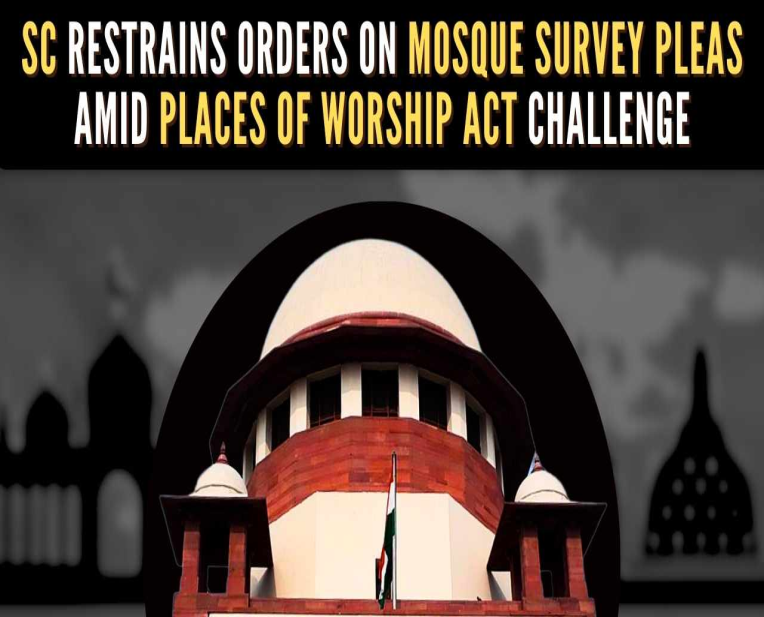SC Halts New Suits on Religious Disputes
Why in the news?
The Supreme Court has barred civil courts from registering fresh suits or ordering surveys of disputed religious sites while it examines petitions challenging the constitutional validity of the Places of Worship Act, 1991.
SC Halts Fresh Suits on Religious Places:
- The Supreme Court (SC) has barred civil courts from registering new suits challenging the ownership or title of places of worship and from ordering surveys of disputed sites until further notice.
- This order, issued by a bench led by Chief Justice Sanjiv Khanna, also prohibits interim or final orders in pending suits, including survey directives.
- The decision aims to maintain the status quo while SC hears petitions challenging the constitutional validity of the Places of Worship Act, 1991.
Key Provisions of the 1991 Act
- Enacted amidst the Ayodhya movement, the Places of Worship Act, 1991, protects the religious character of places as they stood on August 15, 1947.
- The only exception is the Ram Janmabhoomi-Babri Masjid dispute, which was already under judicial scrutiny.
- Petitioners argue the Act curtails judicial review of pre-1991 claims and arbitrarily fixes 1947 as the cut-off date for religious status.
Legal Developments and Implications
- Challenges to the Act began in 2020, with claims of Hindu structures being replaced by mosques surfacing in cases like the Gyanvapi mosque.
- Civil court surveys in some disputes were criticized for potentially violating principles of secularism and the rule of law.
- The SC’s 2019 Ayodhya verdict described the 1991 Act as part of the Constitution’s basic structure, underscoring its significance in the current challenge.
- The SC must now decide whether the Act aligns with constitutional principles while the government’s stance remains unclear.
Sources Referred:
PIB, The Hindu, Indian Express, Hindustan Times





